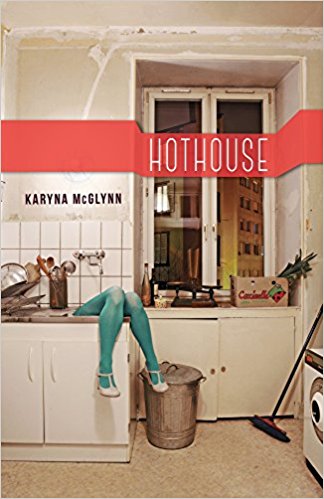- Home
- About
- Submit
- Features
- Interviews
- Book Reviews
- Previous Issues
- Blog
- Contact
-
Issue #25 Spring 2023
- Issue #25 Art Spring 2023 >
-
Issue #25 Poetry Spring 2023
>
- Emma Bolden Spring 2023
- Ronda Piszk Broatch Spring 2023
- M. Cynthia Cheung Spring 2023
- Flower Conroy Spring 2023
- Jill Crammond Spring 2023
- Sandra Crouch Spring 2023
- Satya Dash Spring 2023
- Rita Feinstein Spring 2023
- Dan Fliegel Spring 2023
- Lisa Higgs Spring 2023
- Dennis Hinrichsen Spring 2023
- Mara Jebsen Spring 2023
- Abriana Jetté Spring 2023
- Letitia Jiju Spring 2023
- E.W.I. Johnson Spring 2023
- Ashley Kunsa Spring 2023
- Susanna Lang Spring 2023
- James Fujinami Moore Spring 2023
- Matthew Murrey Spring 2023
- Pablo Otavalo Spring 2023
- Heather Qin Spring 2023
- Wesley Sexton Spring 2023
- Ashish Singh Spring 2023
- Sara Sowers-Wills Spring 2023
- Sydney Vogl Spring 2023
- Elinor Ann Walker Spring 2023
- Andrew Wells Spring 2023
- Erin Wilson Spring 2023
- Marina Hope Wilson Spring 2023
- David Wojciechowski Spring 2023
- Jules Wood Spring 2023
- Ellen Zhang Spring 2023
- BJ Zhou Spring 2023
- Jane Zwart Spring 2023
- Issue #25 Fiction Spring 2023 >
- Issue #25 Nonfiction Spring 2023 >
-
Issue #26 Fall 2023
- Issue #26 Art Fall 2023 >
-
Issue #26 Poetry Fall 2023
>
- Fasasi Abdulrosheed Oladipupo Fall 2023
- Christopher Ankney Fall 2023
- Magdalena Arias Vásquez Fall 2023
- John Peter Beck Fall 2023
- Mihir Bellamkonda Fall 2023
- Benjamin Bellas Fall 2023
- Michael Carson Fall 2023
- Kevin Clark Fall 2023
- Aaron Coleman Fall 2023
- Mark DeCarteret Fall 2023
- Denise Duhamel Fall 2023
- Brandel France de Bravo Fall 2023
- Tina Gross Fall 2023
- Amorak Huey Fall 2023
- James Kimbrell Fall 2023
- Casey Knott Fall 2023
- Stephen Lackaye Fall 2023
- Cynthia Manick Fall 2023
- Savannah McClendon Fall 2023
- John Muellner Fall 2023
- Mollie O’Leary Fall 2023
- Joel Peckham Fall 2023
- Natalia Prusinska Fall 2023
- henry 7. reneau, jr. Fall 2023
- Esther Sadoff Fall 2023
- Hilary Sallick Fall 2023
- Kelly R. Samuels Fall 2023
- Issue #26 Fiction Fall 2023 >
-
Issue #27 Spring 2024
- Issue #27 Art Spring 2024 >
-
Issue #27 Poetry Spring 2024
>
- Terry Belew Spring 2024
- Dustin Brookshire & Diamond Forde Spring 2024 Spring 2024
- Dustin Brookshire & Caridad Moro-Gronlier Spring 2024 Spring 2024
- Charlie Coleman Spring 2024
- Isabelle Doyle Spring 2024
- Reyzl Grace Spring 2024
- Kelly Gray Spring 2024
- Meredith Herndon Spring 2024
- Mina Khan Spring 2024
- Anoushka Kumar Spring 2024
- Cate Latimer Spring 2024
- BEE LB Spring 2024
- Grace Marie Liu Spring 2024
- Sarah Mills Spring 2024
- Faisal Mohyuddin 2024
- Marcus Myers Spring 2024
- Mike Puican Spring 2024
- Sarah Sorensen Spring 2024
- Lynne Thompson Spring 2024
- Natalie Tombasco Spring 2024
- Alexandra van de Kamp Spring 2024
- Donna Vorreyer Spring 2024
- Fiction #27 Spring 2024 >
- Nonfiction #27 Spring 2024 >
Book Review: Karyna McGlynn's Hothouse
Karyna McGlynn is the author of two books of poetry, Hothouse (Sarabande Books, 2017) and I Have to Go Back to 1994 and Kill a Girl (Sarabande Books, 2009), as well as three chapbooks: The 9-Day Queen Gets Lost on Her Way to the Execution (Willow Springs Editions, 2016), Alabama Steve (Sundress, 2014) and Scorpionica (New Michigan Press, 2007). Her poems have recently appeared in Ploughshares, The Kenyon Review, West Branch, Black Warrior Review, Subtropics, AGNI, Witness, Ninth Letter, The Literary Review, and The Academy of American Poets' Poem-A-Day.
Karyna holds an MFA from the University of Michigan, and earned her PhD in Literature & Creative Writing from the University of Houston where she served as Poetry Editor and Managing Editor for Gulf Coast. A veteran performance poet, Karyna has been a member of five National Poetry Slam teams. Her honors include the Kathryn A. Morton Prize, the Inprint Verlaine Prize in Poetry, the Academy of American Poets' Prize, the Marion Barthelme Award for Editorial Excellence, the Claridge Residency, a Cullen Foundation Fellowship, a Zell Fellowship in Poetry, and a Hopwood Award. She was recently the Diane Middlebrook Poetry Fellow at the University of Wisconsin Institute for Creative Writing where she served as Senior Editor for Devil's Lake. She is currently a Visting Assistant Professor of Creative Writing and Translation at Oberlin College. |
Review
|
A Review of Karyna McGlynn's Hothouse by R. E. Steele
Karyna McGlynn’s Hothouse is a breathtaking display of human growth, specifically of becoming a woman: “crawling across the bed…for my fourteen-year-old self reeking of controlled heartbreak”. McGlynn's collection blooms wit and candor. Her artful selection of language surpasses expectations and provides her work versatility. Lifelong influences and experiences, including Marvel superheroes, John Keats, and sexual empowerment, are packed into her wonderful metaphors. McGlynn underscores what we know of loneliness, heartache, and maturing. McGlynn uses linguistic details to sculpt her work down to the sound and sense of a word. She does this skillfully with “Sensual Vocabulary,” where she begins in the opening line with the word "phonaesthetics," which is the study of why a word sounds pleasurable or discordant. By applying specific language, this piece displays how phonaesthetics can affect our reading: Take the word austere, for instance. It does not mean what it should… This piece dissects language and focuses on how it is often not what we expect it to be. The narrator uses the word “austere” as an example, and then lists several other Latinate words such as “crepuscular” and “nonplussed" that mislead readers from their meanings based on theirs sounds.. She deliberates on how words are being used as we “spit them back out again”; showcasing the ways in which we reuse and recycle language to make it new again. Her last line brings us back to this argument. She challenges our expectations by refusing to use a common poetry device – initial alliteration. Austerity means strictness in manners or nature; but, rather than using “song and strictness" to create an alliterative clasp, she uses "austerity." This choice reminds us that language is selected with purpose, reinforcing the power of the written word.
McGlynn’s utilization of language flourishes. Meanwhile, her concepts of love confront her audience with tenacity. Poems like, “Our Books, Our Books” show us an outlook on writing and love as evidenced in the following excerpt: If Love is the sicker of two sick, In this poem, the speaker presents a love of writing while suggesting that “the question is whether to quell this profligate book writing.” As the Dad in the poem asks, “Would you rather write books for a living or find true love with an oceanographer?”, obviously understanding that the speaker of the poem will choose the former. In contrast is the family friend David, who talks about his failed attempts at writing as a career, “Give up this body of work, he says. It cannot love.” Thankfully, neither the "we" of this poem, or McGlynn, follow this advice.
We are guided through the speaker's sensual empowering of herself as a writer, a lover, and as a woman; and, in poems such as “Seventies Couch,” moments of vulnerability are apparent as she writes “take out your guitar, mask my tattered heart in minor chords.” McGlynn depicts the revelation of self discovery as a behavioral and cognitive development over the years of a young woman’s life. This is shown clearly in her work, making her collection relatable as a whole. Love is shaped by dedication and commitment in McGlynn’s poetry. She dresses up maturity over the narrator’s lifetime, from Sally Bowles to dumbshows. Hothouse lets us sway through this exploration into adulthood hoping that we “…call this/costume a costume”. Hothouse is an arresting collection that deserves to be read and experienced. |

R.E. Steele is a Lewis University graduate, who majored in English with a focus in Creative and Professional Writing, alongside a minor in Chinese. She currently serves as the Book Reviews Editor for Jet Fuel Review. Some of her own writing has been published in the spring 2015 issue of the Windows Fine Arts Magazine. When she has a few moments to herself, she kicks back with a craft beer and has a Netflix binging marathon. Some of her favorites include X-Files, Doctor Who, Orange is the New Black, Californication, and American Horror Story.
- Home
- About
- Submit
- Features
- Interviews
- Book Reviews
- Previous Issues
- Blog
- Contact
-
Issue #25 Spring 2023
- Issue #25 Art Spring 2023 >
-
Issue #25 Poetry Spring 2023
>
- Emma Bolden Spring 2023
- Ronda Piszk Broatch Spring 2023
- M. Cynthia Cheung Spring 2023
- Flower Conroy Spring 2023
- Jill Crammond Spring 2023
- Sandra Crouch Spring 2023
- Satya Dash Spring 2023
- Rita Feinstein Spring 2023
- Dan Fliegel Spring 2023
- Lisa Higgs Spring 2023
- Dennis Hinrichsen Spring 2023
- Mara Jebsen Spring 2023
- Abriana Jetté Spring 2023
- Letitia Jiju Spring 2023
- E.W.I. Johnson Spring 2023
- Ashley Kunsa Spring 2023
- Susanna Lang Spring 2023
- James Fujinami Moore Spring 2023
- Matthew Murrey Spring 2023
- Pablo Otavalo Spring 2023
- Heather Qin Spring 2023
- Wesley Sexton Spring 2023
- Ashish Singh Spring 2023
- Sara Sowers-Wills Spring 2023
- Sydney Vogl Spring 2023
- Elinor Ann Walker Spring 2023
- Andrew Wells Spring 2023
- Erin Wilson Spring 2023
- Marina Hope Wilson Spring 2023
- David Wojciechowski Spring 2023
- Jules Wood Spring 2023
- Ellen Zhang Spring 2023
- BJ Zhou Spring 2023
- Jane Zwart Spring 2023
- Issue #25 Fiction Spring 2023 >
- Issue #25 Nonfiction Spring 2023 >
-
Issue #26 Fall 2023
- Issue #26 Art Fall 2023 >
-
Issue #26 Poetry Fall 2023
>
- Fasasi Abdulrosheed Oladipupo Fall 2023
- Christopher Ankney Fall 2023
- Magdalena Arias Vásquez Fall 2023
- John Peter Beck Fall 2023
- Mihir Bellamkonda Fall 2023
- Benjamin Bellas Fall 2023
- Michael Carson Fall 2023
- Kevin Clark Fall 2023
- Aaron Coleman Fall 2023
- Mark DeCarteret Fall 2023
- Denise Duhamel Fall 2023
- Brandel France de Bravo Fall 2023
- Tina Gross Fall 2023
- Amorak Huey Fall 2023
- James Kimbrell Fall 2023
- Casey Knott Fall 2023
- Stephen Lackaye Fall 2023
- Cynthia Manick Fall 2023
- Savannah McClendon Fall 2023
- John Muellner Fall 2023
- Mollie O’Leary Fall 2023
- Joel Peckham Fall 2023
- Natalia Prusinska Fall 2023
- henry 7. reneau, jr. Fall 2023
- Esther Sadoff Fall 2023
- Hilary Sallick Fall 2023
- Kelly R. Samuels Fall 2023
- Issue #26 Fiction Fall 2023 >
-
Issue #27 Spring 2024
- Issue #27 Art Spring 2024 >
-
Issue #27 Poetry Spring 2024
>
- Terry Belew Spring 2024
- Dustin Brookshire & Diamond Forde Spring 2024 Spring 2024
- Dustin Brookshire & Caridad Moro-Gronlier Spring 2024 Spring 2024
- Charlie Coleman Spring 2024
- Isabelle Doyle Spring 2024
- Reyzl Grace Spring 2024
- Kelly Gray Spring 2024
- Meredith Herndon Spring 2024
- Mina Khan Spring 2024
- Anoushka Kumar Spring 2024
- Cate Latimer Spring 2024
- BEE LB Spring 2024
- Grace Marie Liu Spring 2024
- Sarah Mills Spring 2024
- Faisal Mohyuddin 2024
- Marcus Myers Spring 2024
- Mike Puican Spring 2024
- Sarah Sorensen Spring 2024
- Lynne Thompson Spring 2024
- Natalie Tombasco Spring 2024
- Alexandra van de Kamp Spring 2024
- Donna Vorreyer Spring 2024
- Fiction #27 Spring 2024 >
- Nonfiction #27 Spring 2024 >

